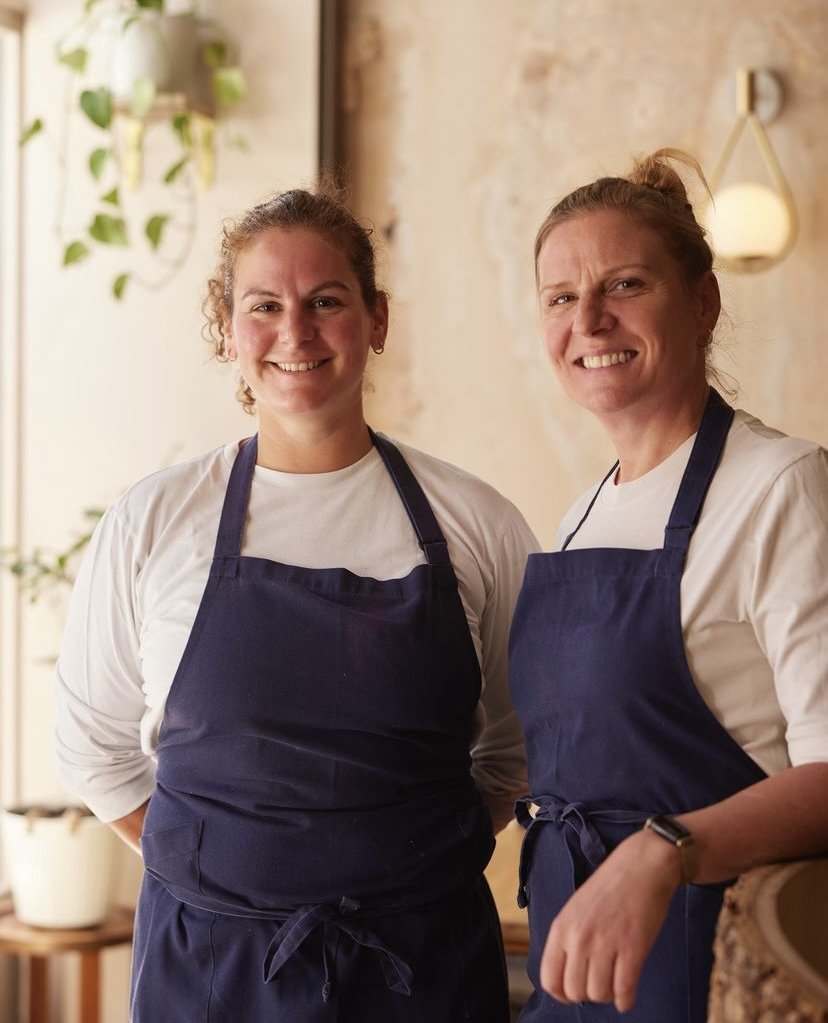Apricity - Flexibility of menus
Apricity is a conscious, low waste restaurant in Mayfair championing British produce from small-scale growers, regeneratively farmed meat and sustainably caught fish. We spoke with their head chef, Eve-Marie Seemann about the approach they take designing their menus and engaging with their primary producers. The team at Apricity aim to go above and beyond sustainability, rethinking and redesigning the way their restaurant operates whilst sharing these learnings with the hospitality community.
Can you outline how you manage your menus, and why you have chosen this approach?
“The menus are designed around what the suppliers can offer, so pretty much anything at peak. We work backwards in a way, as we adapt to the produce available and not the other way around, demanding certain items to be available when we need them. To implement that, we operate menus solely online, allowing us to change items as the day goes without having to re-print everything, provided we also communicate clearly with the FOH of course.”
How has this approach to your menu creation impacted on your customer or staff experience?
All the communication between our team and our customers revolves around where the products are from (rather precisely, through farm name and location), why they appear on the menu, and what was done to them. This approach to our menu creations allows for a dialogue to be open between the kitchen, the FOH and the guests. We pass the knowledge onto them (FOH), giving them the necessary tools to then introduce our practices to our guests. The chefs are also encouraged to serve and engage with the guests, introducing the dishes and the ingredients. We are also blessed with a chef's table, which is a service tailored around the kitchen, with chefs presenting each course.
Regarding constraints, we for example haven't got any citrus on the menu, as it is still a struggle to grow in the UK. Instead, we use the likes of rhubarb (that we juice) to bring acidity to certain dishes, as well as Makrut lime leaves (we have one at the restaurant) and bergamot leaves (from my garden) to bring a citrus dimension to sauces and other infusions.
What is the value of chefs having strong relationships with their primary producers?
A strong relationship is valuable on many levels, besides the important human interaction it naturally creates. Collaborating closely with producers leads to innovative menu offerings, leading to a unique dining experience. A menu reflecting seasonal and local ingredients is also an important vessel in strengthening the educational aspect a restaurant like ours tends to have on its guests. The more we communicate, the more we can talk about the wonderful products they have on offer.
It is also critical to exchange regularly with all suppliers to stay up to date with the shifts that might have happened, sometimes overnight.
Talking to the fishmongers helps us understand what is available in abundance at this particular moment, because they speak to the actual fishermen, and report back to us, which is a great addition to the more official MSC website, not always updated in time to reflect what is actually in the water. Talking to the butcher allows us to discover more farms that apply regenerative practices, and allows us to choose what goes on the menu with the help of a professional.
Talking to the veg suppliers keeps us up to date with what is best to use and when, what has had issues, such as pests or diseases, and which farm needs a little more help, leading us to perhaps order their produce over others.
What are some practical ways chefs can begin to engage with their primary producers more, and center these producers in their menu choices and business plans?
Whatsapp! Ditch the in-app/online ordering and pick up the phone. Get the suppliers to come and visit your restaurant. Meet actually face to face and share a coffee and a laugh. Go to the farms and spend a day volunteering with the growers. Create a little community. And most importantly get all the chefs in the kitchen involved as well, they are the future!
Also get everyone to watch a film called 6 Inches of soil. It is a great eye opener for both educated and novices on the matter.






